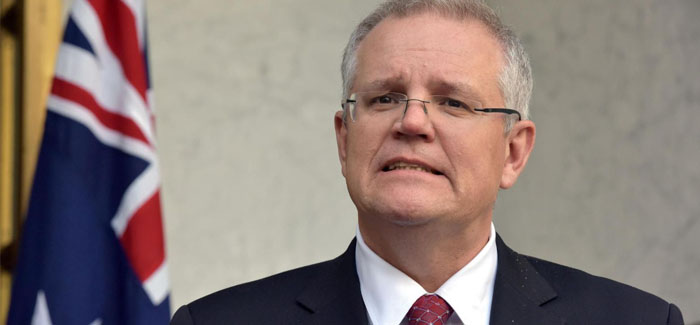Liberals Win In Australia – Factors That Favoured This Impossible Win Against Labors
Scott Morrison’s ‘miracle’ win in the 2019 elections in Australia has confounded the pollsters. The nine-month-old Prime Minister of Australia was widely expected to be defeated in the recent election after long trailing in opinion polls. However, the way the Liberals hailed victory in the May election this year, has surprised everyone including the opposition Labor Party. Shortly after Labor leader Bill Shorten conceded defeat, Morrison, who had campaigned on providing tax cuts and the strength of Australia’s economy, claimed the win.
The conservative coalition led by Liberals scored more seats in the 151-member House of Representatives compared to the Labors. However, it was doubtful that they will win an outright majority of 76 seats, or they will need to negotiate with independents to form a minority government. Though it was evident among the opposition that they won’t be forming the government, the Liberals winning the majority in such close election were not predicted. Let’s look at the factors that influenced this miracle win by the Liberals.
Earlier a marketing man who approved Tourism Australia’s infamous “So where the bloody hell are you?” campaign, Scott Morrison rose as a strict immigration minister in politics. While he created controversy by preventing boats of asylum seekers from reaching Australia, he pitched himself to voters as an everyday family man the country could trust as the Prime Minister. From naming himself as ‘ScoMo‘, making folksy pitches such as “a fair go for those who have a go” and often introducing people with the words “how good is”, Morrison cheered the win by addressing people with “How good is Australia!” Further, he also neutralised the ongoing chaos about him replacing Malcolm Turnbull.

Other than these, despite a lack of policies, Morrison’s performance in the campaign was a success as he sharpened his attacks and criticised Labor policies that were being promoted by Bill Shorten. While arguing that Labor would make people less prosperous, he pushed the economy and promised that his government would deliver better times ahead. This helped his party gaining strength to the centre of his campaign. All these factors influenced the Liberals’ win in the country.
However, it’s not going to be an easy path for Morrison as he faces critical challenges to define the modern identity of his party in an era when its moderates and conservatives are in open conflict. Also, he is expected to reconvene parliament so he can pass promised tax cuts. Including efforts to tackle climate change, formally recognising indigenous Australians and female representation in parliament, Morrison’s government is likely to face continued scrutiny on several issues.
There is a long-term risk for Labor if it worries only about the tactics it used to reach voters rather than what it told them while social media campaigns and Palmer advertising influenced the outcome. Morrison won this election because he had the confidence to keep going with barely a stumble during the campaign, and the sheer force of will and total discipline helped him in achieving the result.







